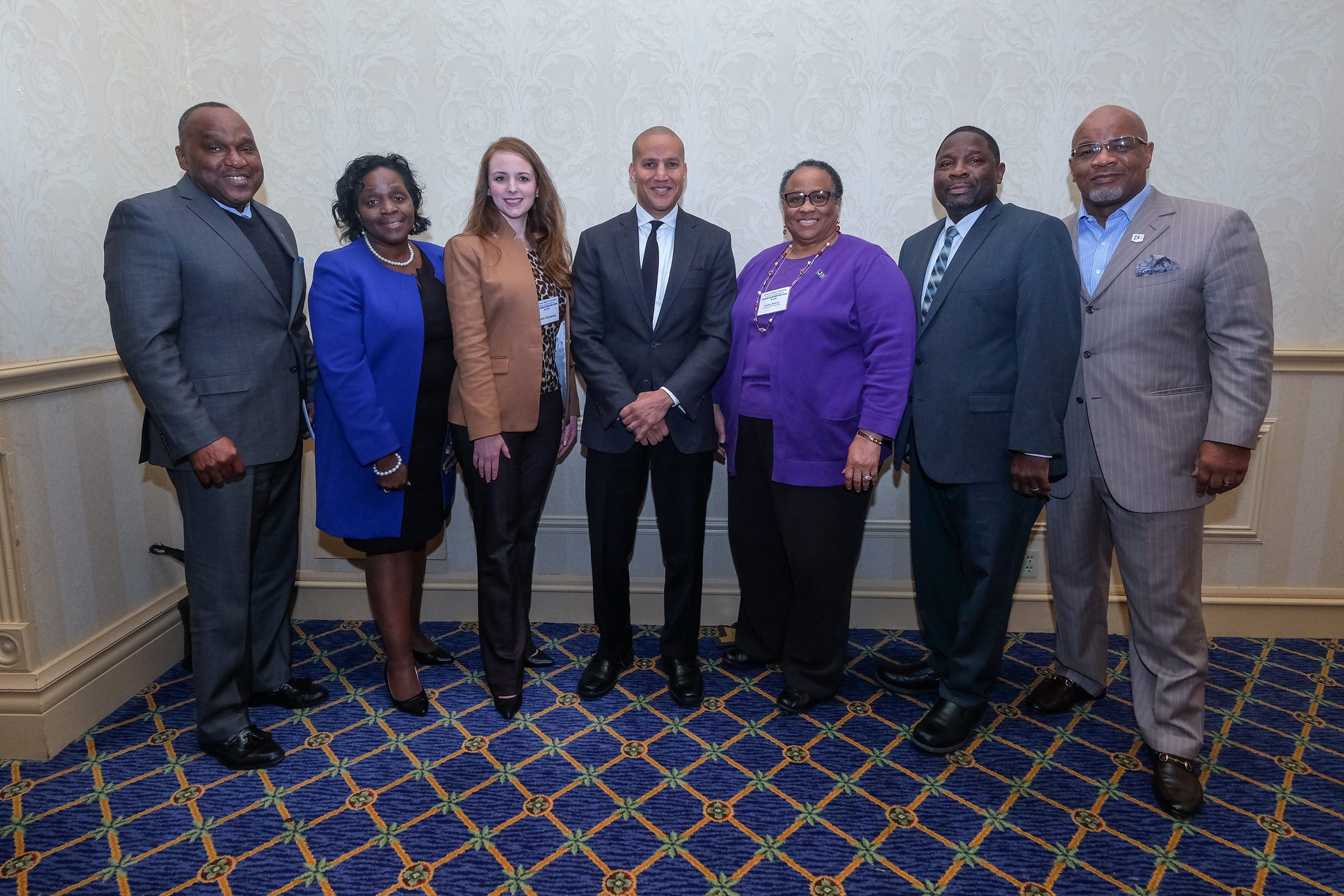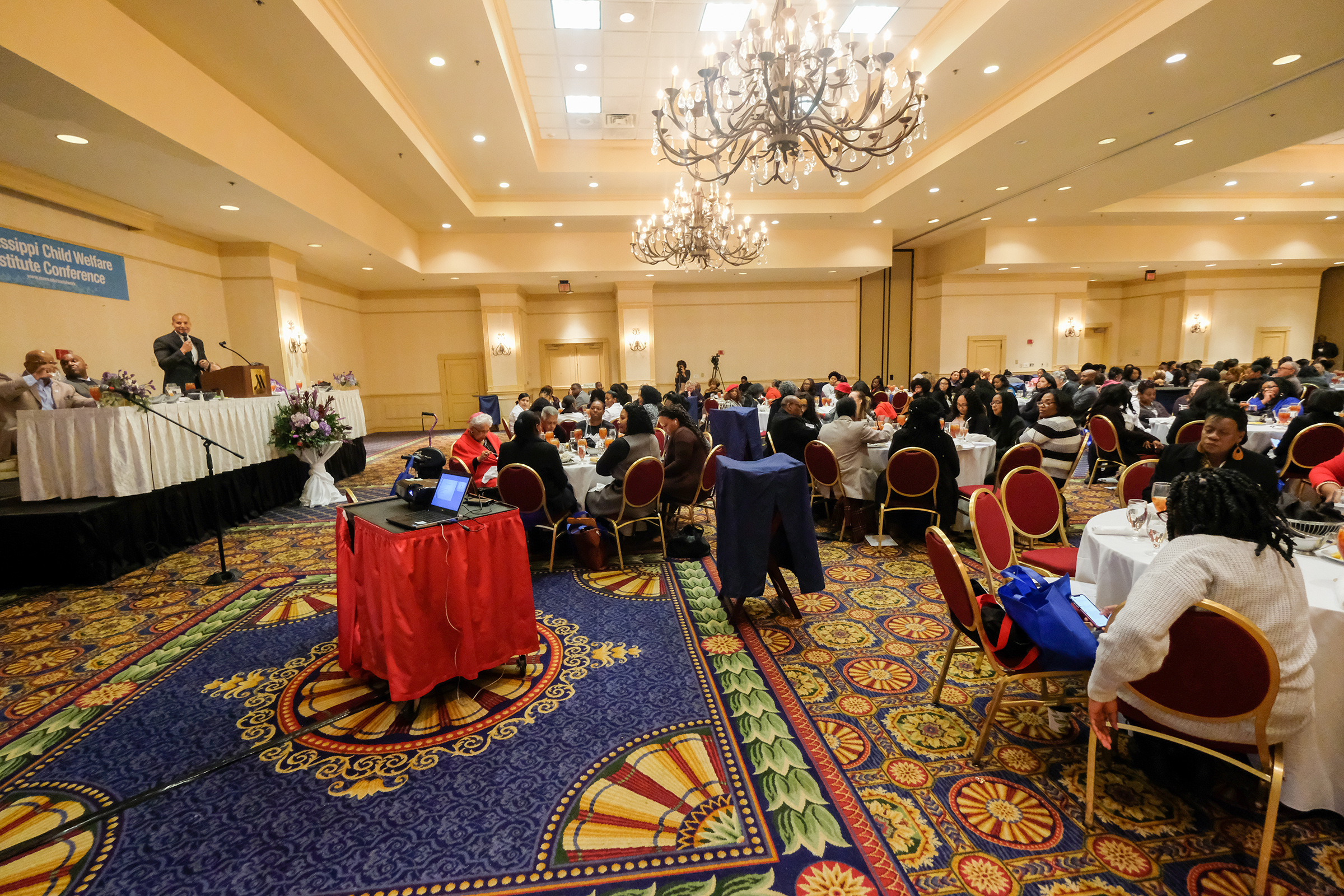
[hr]
![]()
[hr]
The School of Social Work in the College of Public Service hosted its 17th annual Mississippi Child Welfare Institute Conference (MCWIC) last week. The goal of this year’s conference was to examine the issues and best practices focusing on children’s health as well as mental health. The event, themed “From Issues to Solutions: Advancing Excellence in Health, Mental Health and Substance Abuse Practice with Children, Youth, Families and Communities,” was keynoted by Dr. Timothy Quinn.
Dr. Quinn practices family medicine and is the medical director and owner of Quinn Healthcare, LLC. With more than a decade of experience in private practice, he is a public figure and leader in the Jackson community whose primary focus is on educating his patients and the general population on creating healthy life-long habits.
“Dr. Timothy Quinn is making strides in legislation that focus on children’s health and obesity, which has the potential to positively impact families living in Mississippi,” says Dr. Isiah Marshall, Jr., co-chair of MCWIC and associate dean for the School of Social Work.
“We are working on an initiative to make a law in Mississippi so that all school aged children are required to get a physical each year,” says Quinn. “When children receive consistent physicals, they have a better chance of performing well in school. My presentation will demonstrate the steps being taken to make this law a reality.”
The initiative is a collaboration between Quinn Healthcare, The American Medical Association, MS Division of American Academy of Pediatrics, MS Division of American Academy of Family Medicine and Jackson Pubic Schools.
“We are hoping to educate the students at Jackson State on how to take an idea and go through a process by collaborating with other non-profit and government organizations,” says Quinn. “It is my hope that our process can be used as a learning tool so when students want to make their community a better place, they will have a demonstration of a concrete process that we have previously performed that can positively assist them with the method while working in the capacity of a social work.”
MCWIC is a staple for providing professional development and networking opportunities to diverse professionals, students, faculty, and committed child welfare individuals in the community.
“As it relates to our students, this conference supports their classroom learning of theories and policies focusing on children, youth and families,” says Marshall. “It also enhances their knowledge of current trends and provides them with a place to present their scholarly work.”
The conference also connects alumni with continued educational opportunities and allows them to network with noted scholars in the area of child and mental health. Ultimately, affording them with the opportunity to take best practices back to their agencies to be used in their profession.
[hr]







